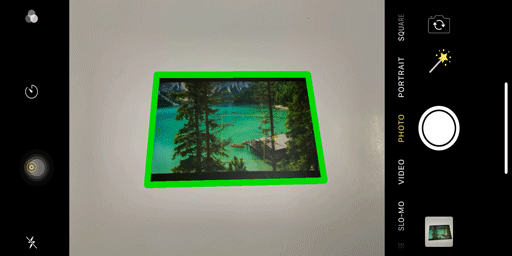Deep Photo Scan: Semi-supervised learning for dealing with the real-world degradation in smartphone photo scanning
Man M. Ho and Jinjia Zhou
In ArXiv, 2021.
- Ubuntu 16.04
- Pillow
- PyTorch >= 1.3.0
- Numpy
- gdown (for fetching models)
git clone https://github.com/minhmanho/dpscan.git
cd dpscan
You can download the pre-trained model (1D-DPScan+RECA+SSL) at here (148MB) or run the following script:
./models/fetch_model.sh
Note: The pre-trained model of G-DPScan+RECA+LA+SSL will be published soon.
Run our semi-supervised Deep Photo Scan to restore smartphone-scanned photos as:
CUDA_VISIBLE_DEVICES=0 python run.py \
--in_dir ./data/in/ \
--out_dir ./data/out/ \
--ckpt ./models/dpscan_saved_weights.pth.tar \
--size 1072x720
Check DPScan Page for the results.
Please check DPScan Page for more information.
If you find this work useful, please consider citing:
@misc{ho2021deep,
title={Deep Photo Scan: Semi-supervised learning for dealing with the real-world degradation in smartphone photo scanning},
author={Man M. Ho and Jinjia Zhou},
year={2021},
eprint={2102.06120},
archivePrefix={arXiv},
primaryClass={cs.CV}
}
We would like to thank:
- digantamisra98 for the Unofficial PyTorch Implementation of EvoNorm
Liu, Hanxiao, Andrew Brock, Karen Simonyan, and Quoc V. Le. "Evolving Normalization-Activation Layers."
ArXiv (2020).
- Richard Zhang for the BlurPool
Zhang, Richard. "Making convolutional networks shift-invariant again."
ICML (2019).
- Timofte et al. for the DIV2K dataset
Timofte, Radu, Shuhang Gu, Jiqing Wu, and Luc Van Gool.
"Ntire 2018 challenge on single image super-resolution: Methods and results."
CVPR Workshops (2018).
This work, including the trained models, code, and dataset, is for non-commercial uses and research purposes only.
If you have any questions, feel free to contact me (maintainer) at [email protected]
